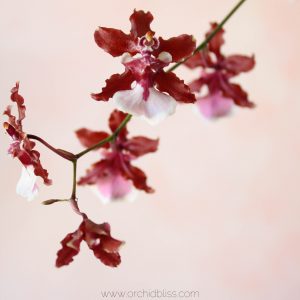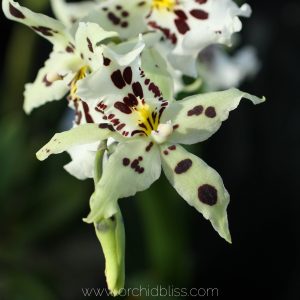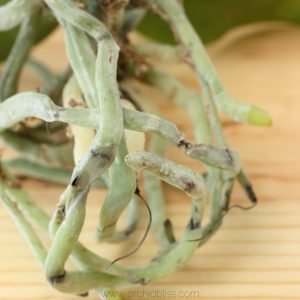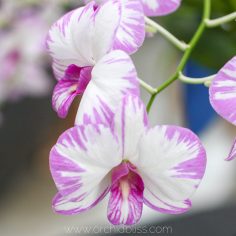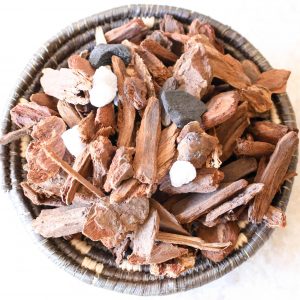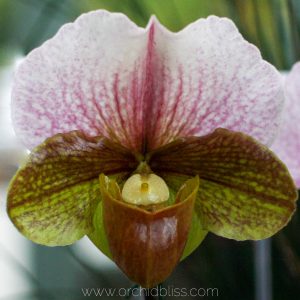
How Orchids Attract Pollinators
Orchids are highly specialized, especially when it comes to pollination. They are masters of deception when it comes to doing whatever it takes to secure the survival of their species. Let’s discover how orchids attract pollinators.
The more I learn about orchids the more fascinating they become. When Charles Darwin wrote about natural selection, he could have been describing orchids. These plants use every trick in the book to perpetuate their species.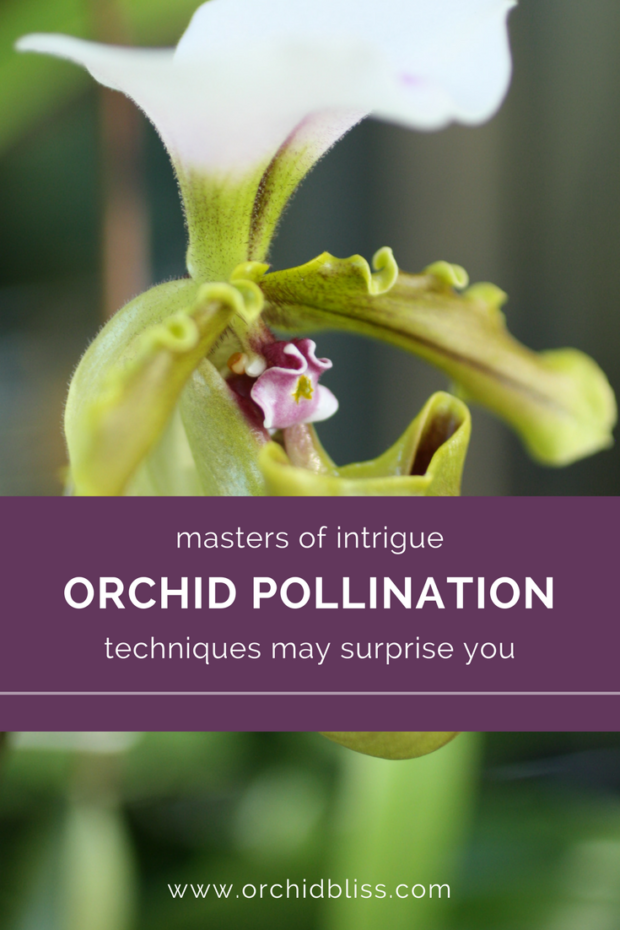
Some of the links on this page may be affiliate links. Click here to learn more.
What’s in a Seed?
Orchid seeds are teensy-tiny and consequently, don’t have their own supply of stored energy. Because the chances of each seed growing into an orchid is so small, orchids produce many thousands of seeds to up their chances of reproducing.
Interestingly, orchids require the help of certain fungi to help their minuscule seeds swell and develop. Consequently, it took a long time before anyone knew about the importance of these fungi and scientists were able to successfully grow orchids from seed.
Orchids are the largest species of flowers and use some pretty intriguing methods to convince bees, wasps, moths, butterflies, and even birds to pollinate them. Here is what an orchid seed pod looks like:
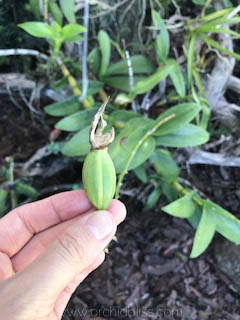
When Karina emailed me this photo asking me what this was growing on her orchid, I immediately asked her if I could post her orchid’s seed pod on Orchid Bliss. Thanks, Karina!
Welcome to My Lair
The lip on a lady’s slipper, the Paphiopedilum, acts as both an attractor and then as a landing pad for the pollinator. There are also little hairs that point downward, guiding insects down the lip and into the flower where the pollen packets are waiting.
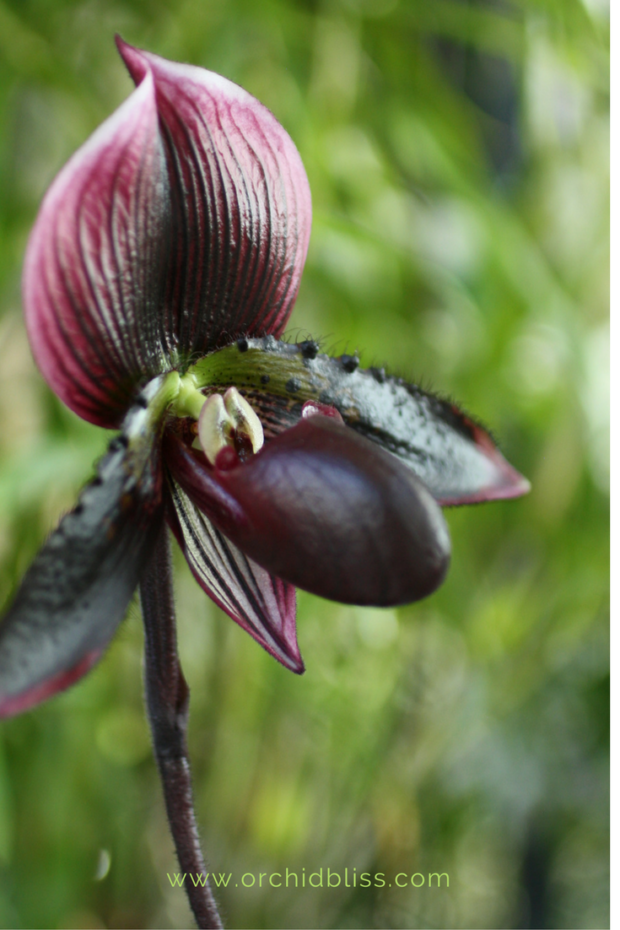
I’m Not a Flower, I’m a…
The grocery store orchid, phalaenopsis, is also nicknamed the moth orchid. So-called because when a breeze comes up it flutters imitating a moth. When a moth comes to investigate, it unwittingly receives the gift of a pollen packet from the orchid and carries the packet to another orchid, completing the pollination process.
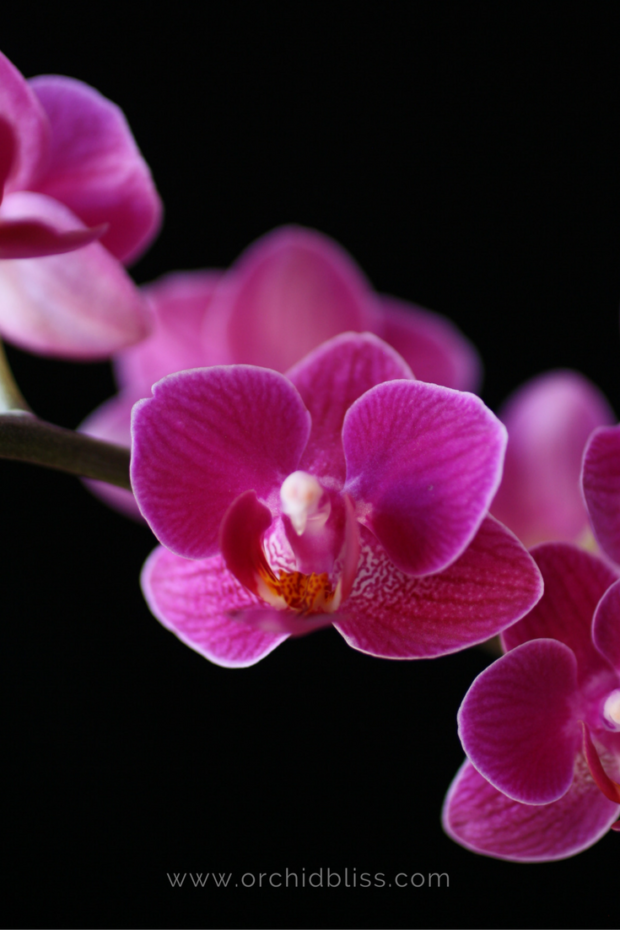
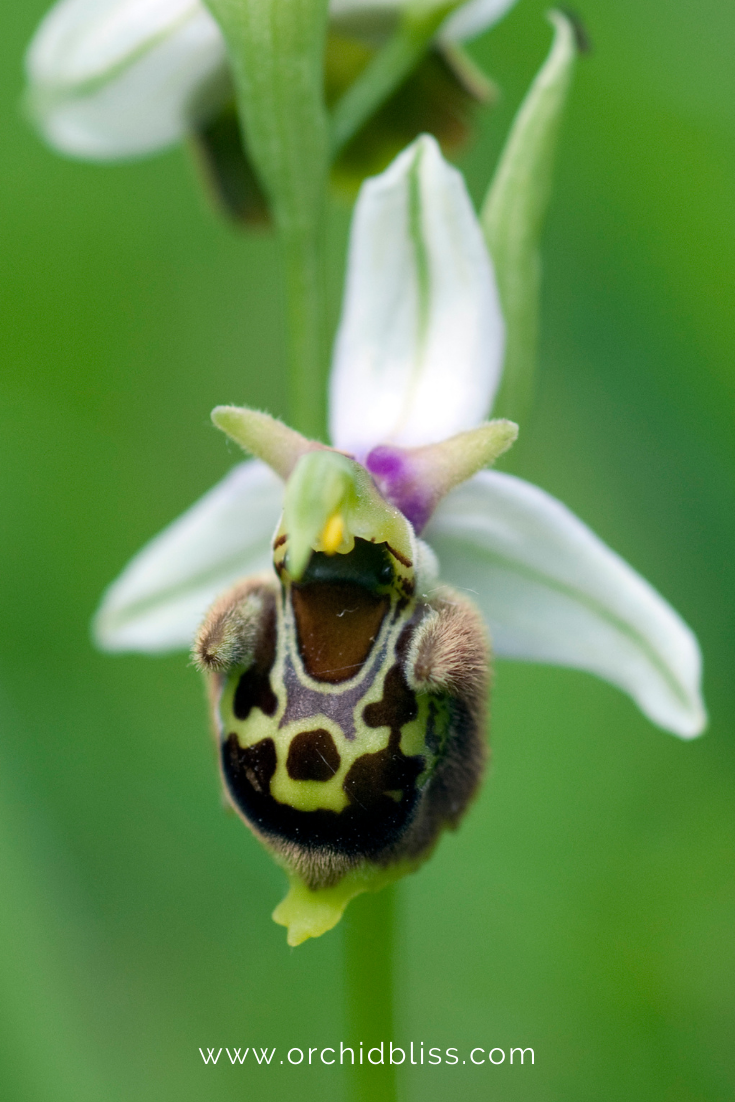
The bee orchid actually looks like its pollinator. Different bee orchids, Ophrys, looks like different bees depending on which bee is its pollinator. Amazing! And, the orchid even emits pheromones that the bees use to attract mates.
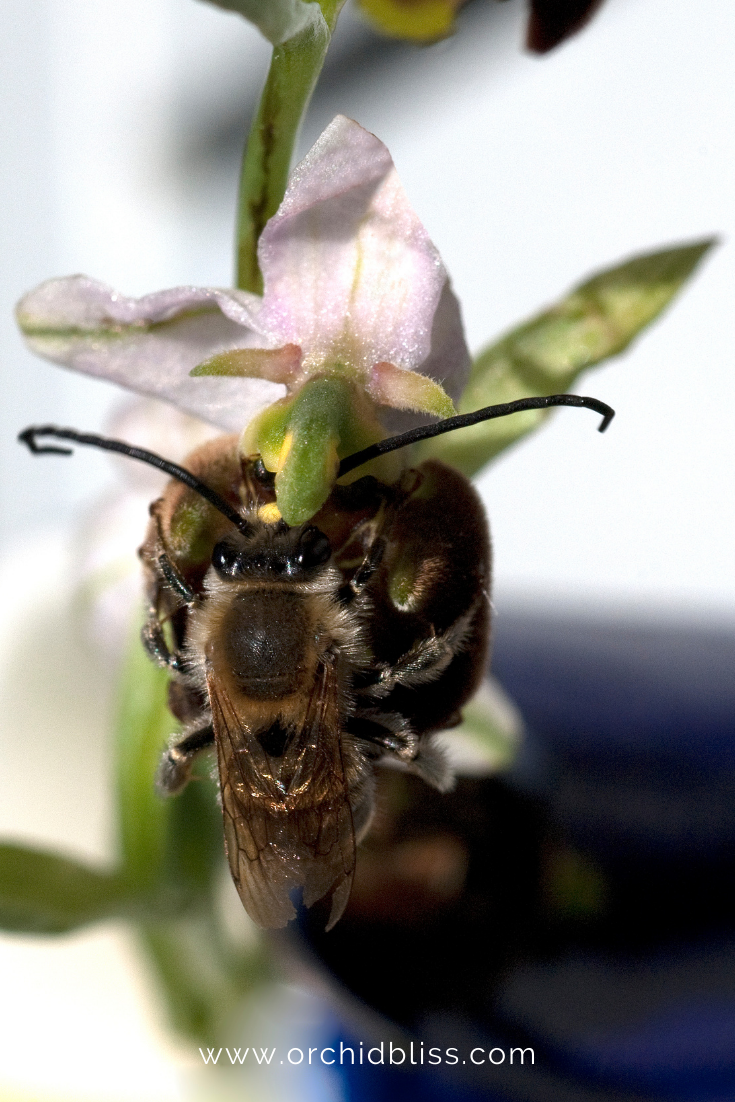
In this image, the so-called bee orchid successfully attracted its pollinator of choice.
The house-happy spider orchid, Brassia, looks like a giant spider, whose floral fragrance will fill a room. The female spider-hunter wasp stings the orchid flower’s lip while unsuccessfully trying to grasp its “prey.” Instead of a spider, the wasp ends up with a pollen packet that she delivers to another Brassia orchid. Once I stepped on a Brassia flower that fell to the ground and when I looked down I let out a little squeak. I thought for a second that it actually was a spider. On second glance, I was relieved to see that it was just a dropped flower.
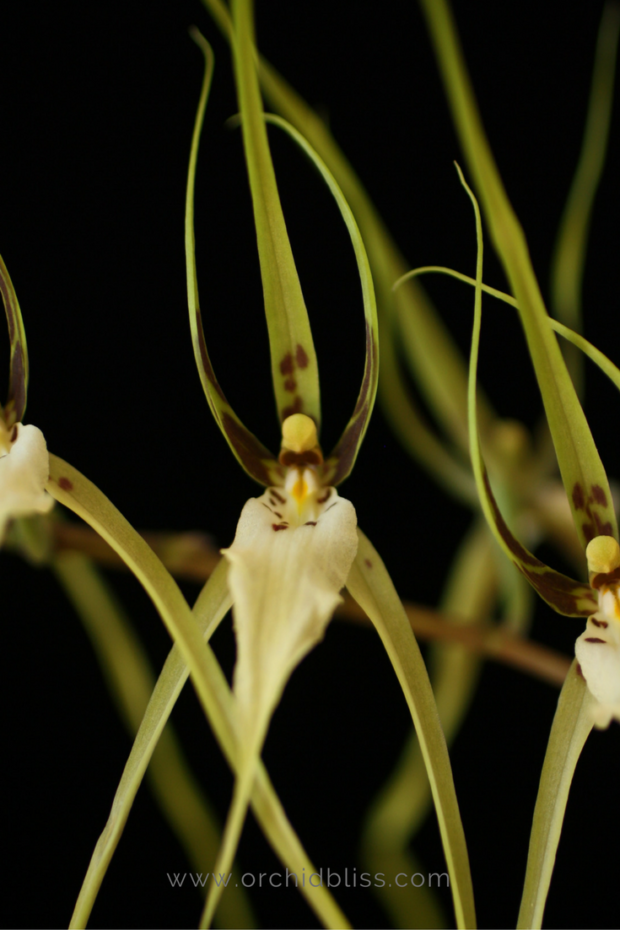
There is one orchid that I do not recommend. The Bulbophyllum phalaenopsis has odd-looking flowers that mimic the look of rotting flesh, complete with maggots, with an authentic putrid odor that lures its fly pollinator. Yuck! (Not to worry, other orchids smell like heaven. For example for a chocolate fragrance, try the Oncidium ‘Sharry Baby’.
Keep Learning
To help you further, start by downloading my free cheat sheet to see where to cut the orchid flower spike after blooms have faded to trigger re-blooming. Click here, for the cheat sheet. It’ll be super helpful.

